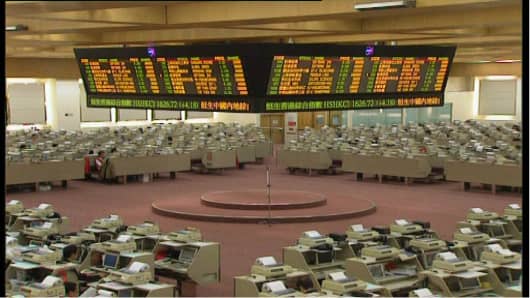Asian stocks seesawed in volatile trade Tuesday with financial counters and exporters taking a roller-coaster ride. Japan closed slightly lower though the market was well over 1 percent lower at one point. South Korea finished the session up 1.2 percent.
Investors were worried that a slowing U.S. economy, combined with accelerating price rises could lead to stagflation, which refers to when prices rise and growth stagnates, would curb spending and drag out the credit crisis. Stagflation was last seen in the 1970s following a massive spike in oil prices.
The Nikkei 225 Average fell for a fifth day, with exporters such as Canon sold on growing uncertainty about the U.S. economy. In a volatile session with light turnover, bank shares including Mitsubishi UFJ Financial Group swung back and forth before ending higher.
South Korea's KOSPI rose for the first time in four sessions to end up 1.2 percent, as investors played down worries that U.S. inflation is rising while the world's top economy is slipping.


